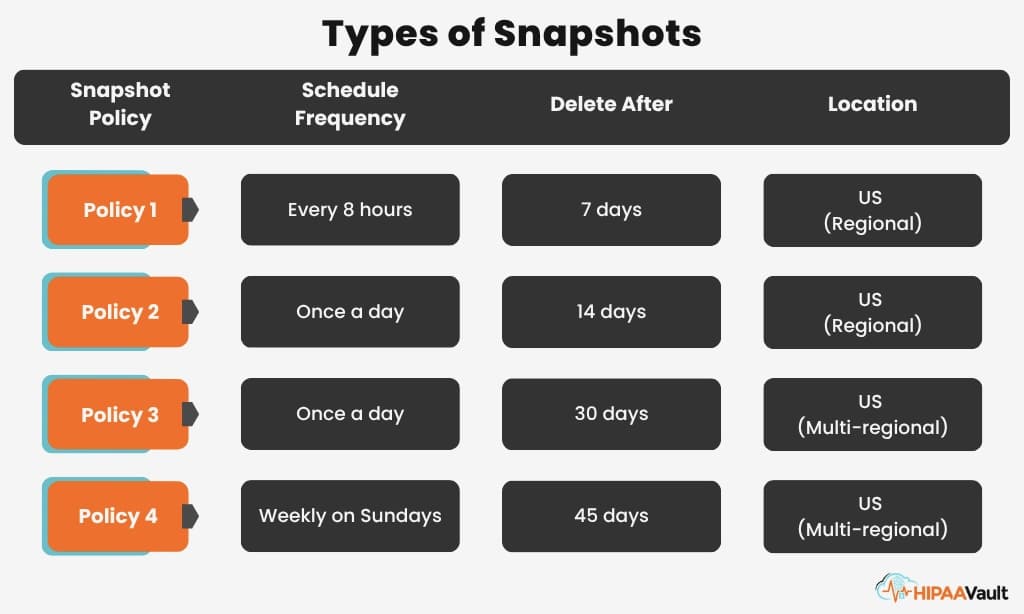Healthcare data breaches remain a leading cause of regulatory fines and reputational damage in the U.S. According to the U.S. Department of Health and Human Services (HHS), over 540 healthcare data breaches involving 500 or more records were reported in 2023 alone. Many of these incidents trace back to insecure infrastructure—not always malicious hackers, but misconfigured hosting, shared environments, or absent audit controls.
That’s why choosing the best HIPAA-compliant hosting service isn’t just about performance or pricing—it’s about trust, compliance, and proven security architecture.
Let’s explore what makes a provider truly HIPAA-compliant, how to evaluate them, and why HIPAA Vault continues to lead the industry.
What Makes a Hosting Provider HIPAA-Compliant?
To host Protected Health Information (PHI), a cloud or web hosting service must implement administrative, technical, and physical safeguards required under the HIPAA Security Rule (45 CFR Part 164 Subpart C).
A HIPAA-compliant hosting service typically provides:
- Encryption in transit (TLS 1.2 or higher) and at rest (AES-256 or FIPS 140-2 validated modules)
- Isolated environments to avoid cross-tenant data exposure
- Strong access controls (role-based permissions, MFA, and unique IDs)
- Logging and audit trails with log retention policies
- Business Associate Agreement (BAA) signed with the covered entity or business associate
Importantly, HIPAA does not certify hosting vendors. Instead, it requires covered entities to perform due diligence and ensure their partners implement the right safeguards.
Don’t Trust Patient Data to Standard Web Hosting
Protect your practice from breaches and fines. Our hosting includes intrusion detection, firewalls, and audit logs.
Learn MoreWhy HIPAA Compliance in Hosting Matters
When you choose a hosting provider for a telehealth app, patient portal, or healthcare website, you’re entrusting them with sensitive medical records, demographic data, and insurance details—all of which qualify as PHI.
Even one misstep, like a missing BAA or an unencrypted file, can lead to serious penalties. In 2020, a single practice was fined $100,000 by the Office for Civil Rights (OCR) for failing to implement proper risk analysis and secure hosting solutions.
Compliance-driven hosting is no longer optional—it’s foundational to patient trust and legal risk management.
Comparing the Best HIPAA-Compliant Hosting Services
Several cloud providers claim HIPAA compatibility—but only a few offer fully managed, turnkey solutions designed for healthcare use cases.
Key Features to Evaluate
When comparing vendors, look for these core capabilities:
- Dedicated or container-isolated environments (never shared hosting)
- Automatic patch management and vulnerability scanning
- 24/7 security monitoring (preferably with a managed SOC)
- BAA availability for all services, including backups and storage
- Flexible infrastructure options (WordPress, Kubernetes, containers, VM)
- Integrated email and file sharing tools for HIPAA workflows
Generic infrastructure-as-a-service providers like AWS and Azure offer HIPAA-eligible services—but you must configure everything yourself and manage the security layers independently. This is where most healthcare developers, startups, and clinics hit a wall.
Where HIPAA Vault Stands Out
HIPAA Vault offers a fully managed hosting environment, tailored for healthcare organizations and healthtech developers. Each environment is pre-configured for compliance, with:
- Built-in AES-256 encryption and TLS enforcement
- Intrusion detection and file integrity monitoring
- 24/7 SOC-driven security monitoring
- Signed BAAs covering all services
- Expert support from HIPAA compliance engineers
And for web agencies and providers using WordPress, HIPAA Vault’s secure WordPress hosting solution ensures your forms, patient portals, and appointment tools meet every compliance checkbox—without compromising on speed or scalability.
🛡 Explore HIPAA-Compliant WordPress Hosting
Managed Security: A Must-Have for Healthcare Hosting
True HIPAA-compliant hosting isn’t just about spinning up a server—it’s about managing it 24/7, detecting anomalies, patching vulnerabilities, and guiding clients through breach protocols if something goes wrong.
HIPAA Vault includes managed security services with every hosting plan:
- Security patching and updates
- Centralized audit logging
- Incident response support
- Multi-region redundancy and backups
- MFA and access controls configured for least privilege
Providers like HIPAA Vault handle compliance while your team focuses on care delivery and application development.
How to Verify a Hosting Service Is Truly Compliant
To validate a vendor’s HIPAA claims:
- Request a copy of their standard Business Associate Agreement (BAA)
- Ask for a compliance attestation or third-party audit summary (e.g., SOC 2 Type II)
- Confirm that encryption is implemented both at rest and in transit
- Inquire about their audit logging, data isolation, and incident response practices
- Ensure their services cover web hosting, email, and file sharing if you need all three
If the answers are vague or you’re told to “configure it yourself,” it’s a red flag. A trusted hosting provider should be transparent and willing to walk you through every safeguard.
Conclusion: Finding the Right HIPAA-Compliant Hosting Partner
The best HIPAA-compliant hosting service in 2025 isn’t the one with the most features—it’s the one that simplifies compliance, protects PHI by design, and acts as a true partner in your healthcare mission.
HIPAA Vault delivers on all fronts, offering fully managed WordPress hosting, secure cloud environments, and always-on support from real HIPAA experts. Whether you’re a developer, clinic, or digital health startup, you’ll find a compliance-first foundation that scales with you.
Ready to elevate your healthcare infrastructure?








